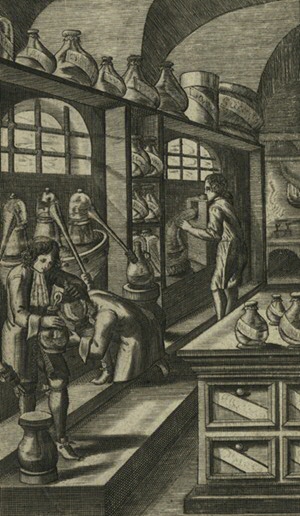Nadruk op bloed, zweet en tranen veranderde medische wetenschap
Bloed, urine, melk, zweet en sperma. Dat deze stoffen niet alleen voor medici, scheikundigen of biologen interessant zijn, bewijst de promotie van historicus Ruben Verwaal. Hij heeft onderzo cht hoe artsen de lichaamssappen bestudeerden in de achttiende eeuw en concludeert dat destijds de kiem is gelegd voor baanbrekende medische ontwikkelingen een eeuw later. Verwaal promoveert op 14 juni aan de Rijksuniversiteit Groningen.
De antieke en middeleeuwse geneeskunde was gebaseerd op de vier zogeheten ‘humeuren’ (bloed, zwarte gal, gele gal en slijm). In de zeventiende eeuw verschuift de aandacht naar anatomie. Anatomische theaters en atlassen, en mechanische modellen van het lichaam doen hun intrede. Verwaal toont met zijn onderzoek aan dat er na 1700 opnieuw sprake is van een kentering. Hij behandelt in zijn proefschrift vijf lichaamssappen, met passende hoofdstuktitels als De aard van bloed, Piskijkers en kruikezeikers, Veel in de moedermelk te brokkelen hebben, Zweet het uit! en Zaad.
Nadruk op de vloeistoffen
Verwaal beschrijft in zijn proefschrift hoe in de achttiende eeuw medici weer de nadruk gaan leggen op de vloeistoffen, zoals bloed, urine en melk. Het ontwikkelen van nieuwe onderzoeksmethodes neemt een hoge vlucht: thermometers, hydrometers, chemische laboratoria om te mengen, destilleren en fermenteren. ‘Anatomie gaat over de structuur van het lichaam,’ vertelt Verwaal. ‘Maar voor een beter begrip van de fysiologie - voortplanting, spijsvertering, bloedsomloop, transpireren, urineren - heb je de vloeistoffen nodig. Met deze nieuwe technieken kregen artsen nieuwe inzichten in de aard en veranderlijkheid van onze sappen.’

Boerhaave: vernieuwer tijdens een recessie
Een belangrijke rol in deze ontwikkeling is weggelegd voor de zogeheten Boerhaave School. In de achttiende zitten de universiteiten in Nederland in een recessie. De studentenaantallen lopen terug, nieuwe doorbraken blijven uit. Maar een crisis kan ook de aanleiding zijn voor nieuwe experimenten. Verwaal beschrijft de rijke en wijdverbreide gemeenschap van de zogenaamde Boerhaave School, genoemd naar de beroemde arts en scheikundige Herman Boerhaave. Rond zijn persoon ontstond een gemeenschap van artsen en onderzoekers die het nieuwe onderzoek uitvoerden en de nieuwe geneeskunde propageerden.
Breuk met traditionele visie
Revolutionaire omwentelingen in de medische wetenschap worden doorgaans rond 1800 gesitueerd. Vanaf dat moment kenmerkte de medische wetenschap zich door statistiek en gedetailleerd, kwantitatief onderzoek in het lab. Verwaal plaatst daar een kanttekening bij. ‘Ik ontken niet dat veel ontwikkelingen na 1800 baanbrekend waren. Maar ik constateer wel dat veel van deze vooruitgang zijn oorsprong had in de geneeskunde van de Boerhaave School, al een eeuw eerder.’
Hedendaagse omgang met lichaamssappen
Uit Verwaals onderzoek blijkt dat de gecompliceerde omgang met onze eigen lichaamssappen van alle tijden is. ‘Vrouwen die zwanger zijn, wordt tegenwoordig voorgehouden dat moedermelk heel belangrijk is, terwijl een paar decennia geleden juist het tegenovergestelde gebeurde. Het voorbeeld van de achttiende eeuw toont aan dat moedermelk continu ‘in’ en ‘uit’ is. En onze problematische relatie met urine heeft zelfs negatieve consequenties voor bijvoorbeeld nierpatiënten, die aan 24-uurs urineverzameling moeten doen. Een besef dat urine ooit zeer gewaardeerd was en zelfs geld waard was, kan mensen helpen zich minder te schamen voor de liter urine die ze overdag in een urinebokaal verzamelen.’
Meer informatie
Ruben Verwaal, r.e.verwaal@rug.nl, of via de website van Verwaal

